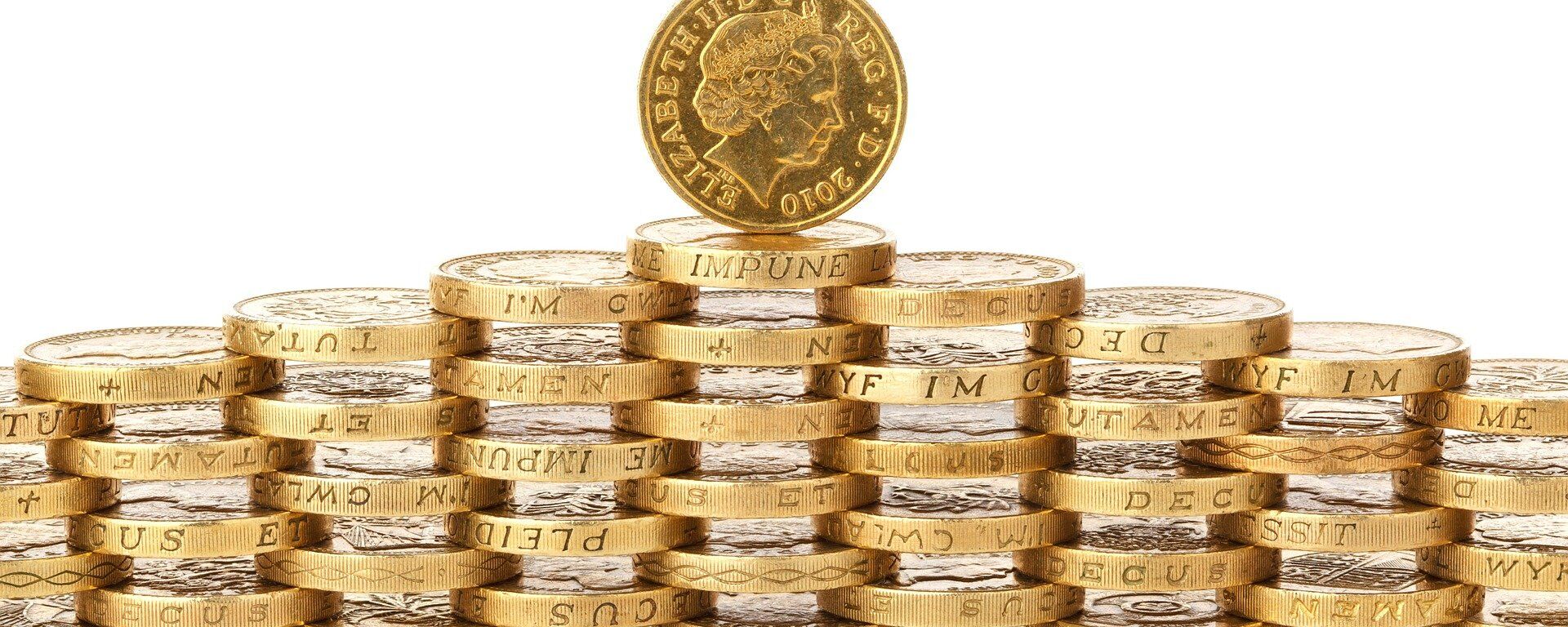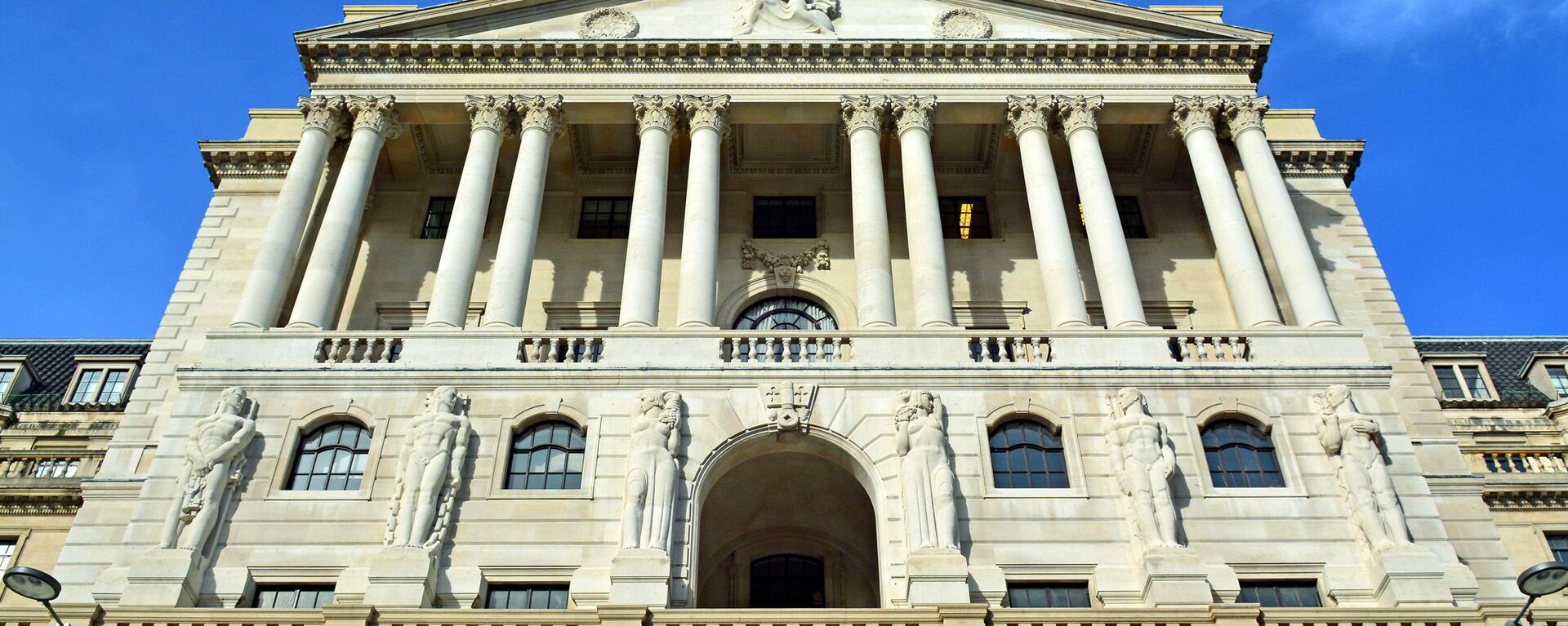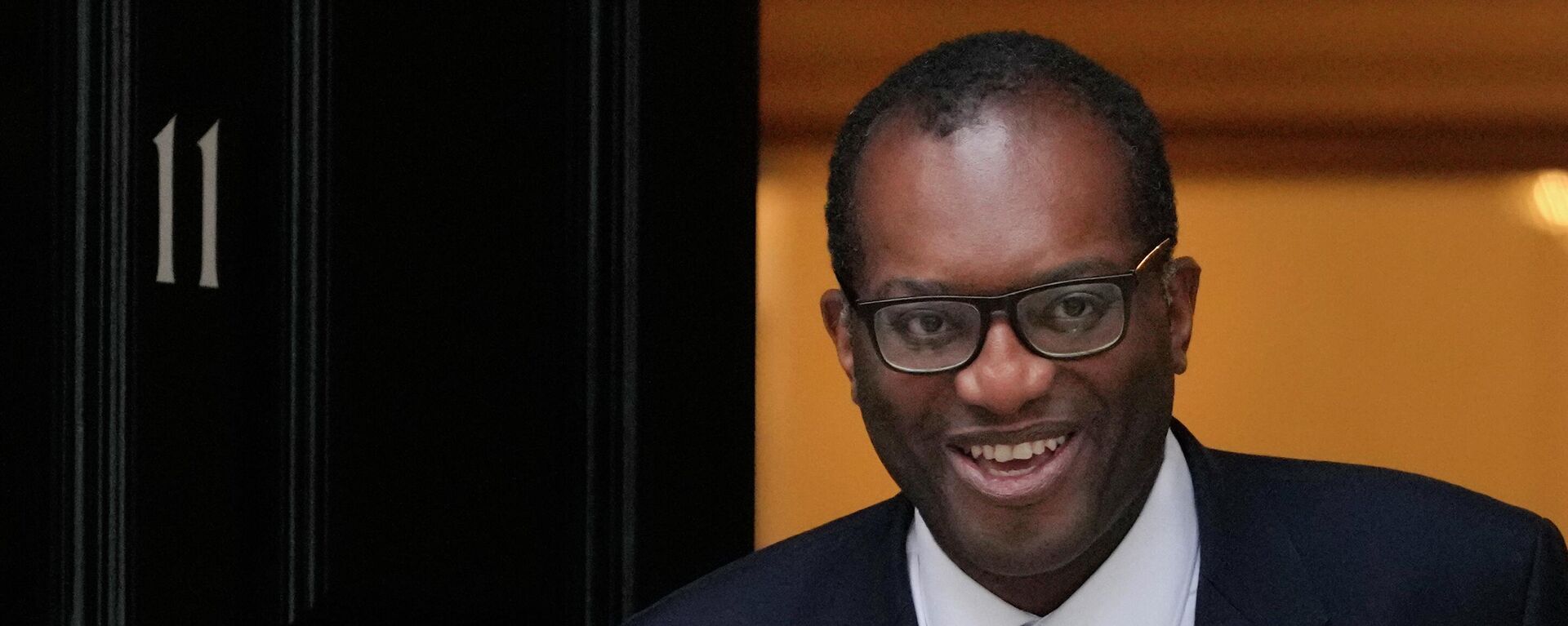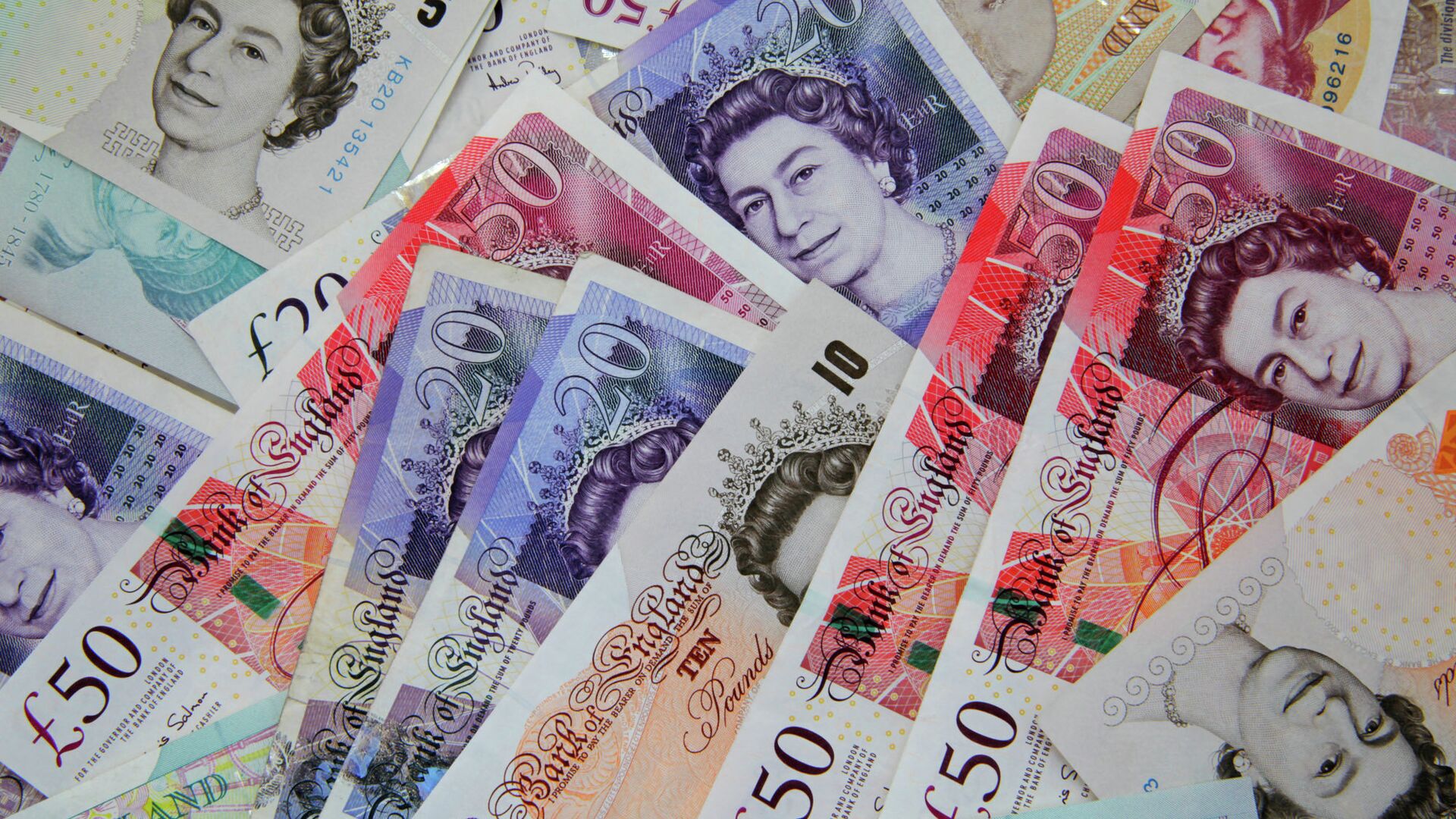https://sputnikglobe.com/20220924/denial-mode-uk-chancellor-dismisses-claims-of-gambling-with-economy-amid-pound-collapse-1101164952.html
Denial Mode: UK Chancellor Dismisses Claims of ‘Gambling’ With Economy Amid Pound Collapse
Denial Mode: UK Chancellor Dismisses Claims of ‘Gambling’ With Economy Amid Pound Collapse
Sputnik International
UK Chancellor Kwasi Kwarteng unveiled a massive package of tax cuts on September 23 as part of what has been dubbed a mini-budget. Tailored to address the cost... 24.09.2022, Sputnik International
2022-09-24T10:45+0000
2022-09-24T10:45+0000
2023-05-28T15:21+0000
world
kwasi kwarteng
pound sterling
cost of living
liz truss
united kingdom (uk)
https://cdn1.img.sputnikglobe.com/img/19190/95/191909518_0:85:2000:1210_1920x0_80_0_0_fe2ec34f73395a032353aee0fa55c547.jpg
UK Chancellor Kwasi Kwarteng has dismissed suggestions he was gambling with the economy amid a scathing assessment of the government’s plans to tackle the cost of living crisis from a think tank.‘Betting The House’Earlier, the Institute of Fiscal Studies (IFS) deplored the chancellor’s plans involving tax cuts worth an estimated £45 billion by 2027 and an increase in borrowing.The UK Treasury said more than £70 billion in increased borrowing would pay for the tax cuts, but the IFS warned borrowing could remain over £110 billion even after the energy support scheme ends.IFS Director Paul Johnson said the plan “seems to be to borrow large sums at increasingly expensive rates, put government debt on an unsustainable rising path, and hope that we get better growth.”The announced measures, such as a reversal of the national insurance hike and reduction of the lower band of income tax, the changes would result in the “vast majority of income tax payers paying more tax” by 2025/26, the think tank said. Only those with incomes over at least £155,000 will be net beneficiaries of the changes, while the “biggest losers” will be those earning between £63,000 and £125,000, the IFS said. Thus, someone earning £1 million a year would gain more than £55,220 a year, while someone on £20,000 would gain only £157 in line with the new measures.Johnson accused the chancellor of opting to “gamble with fiscal sustainability in order to push through these huge tax cuts."“Mr Kwarteng is not just gambling on a new strategy, he is betting the house,” Johnson said, adding:The pound sterling further plummeted to below $1.09 for the first time in 37 years in the wake of Kwarteng's mini-budget announcement. The pound’s all-time low of $1.0545 was witnessed on February 25, 1985. The pound sterling, bonds, and share values all fell sharply on Friday. The FTSE 100 shed 2% of its value by the close, with miners and energy stocks among the worst performers.‘Mini-Budget’Dubbed a mini-budget, the package of measures conceived by the government of Prime Minister Liz Truss was touted as ushering in a "new era" for the UK economy.As part of the new economic agenda, the chancellor announced:The opposition Labour Party slammed the new economic agenda, which was announced a day after the Bank of England warned the UK may already be in a recession and hiked interest rates to 2.25%. According to Shadow Chancellor Rachel Reeves, it was a "plan to reward the already wealthy."Sky News cited Caroline Le Jeune, head of tax at accountants Blick Rothenberg, as saying:
https://sputnikglobe.com/20220908/british-pound-sterling-nosedives-to-1985-low-against-dollar-amid-fears-of-uk-recession-1100529322.html
https://sputnikglobe.com/20220923/uk-may-be-in-recession-says-boe-as-it-warns-support-package-risks-adding-to-inflationary-pressure-1101113153.html
https://sputnikglobe.com/20220923/british-chancellor-unveils-mini-budget-to-tackle-runaway-inflation-1101117219.html
https://sputnikglobe.com/20220921/uk-government-unveils-energy-support-plan-for-hard-hit-businesses-1101037297.html
united kingdom (uk)
Sputnik International
feedback@sputniknews.com
+74956456601
MIA „Rosiya Segodnya“
2022
News
en_EN
Sputnik International
feedback@sputniknews.com
+74956456601
MIA „Rosiya Segodnya“
Sputnik International
feedback@sputniknews.com
+74956456601
MIA „Rosiya Segodnya“
kwasi kwarteng, pound sterling, cost of living, liz truss, united kingdom (uk)
kwasi kwarteng, pound sterling, cost of living, liz truss, united kingdom (uk)
Denial Mode: UK Chancellor Dismisses Claims of ‘Gambling’ With Economy Amid Pound Collapse
10:45 GMT 24.09.2022 (Updated: 15:21 GMT 28.05.2023) UK Chancellor Kwasi Kwarteng unveiled a massive package of tax cuts on September 23 as part of what has been dubbed a mini-budget. Tailored to address the cost of living crisis and boost economic growth, the measures will be paid for by a sharp rise in government borrowing, amounting to tens of billions of pounds.
UK Chancellor Kwasi Kwarteng has dismissed suggestions he was gambling with the economy amid a scathing assessment of the government’s plans to tackle the
cost of living crisis from a think tank.
"It's not a gamble. What is a gamble is thinking that you can keep raising taxes and getting prosperity, which was clearly not working. We cannot have a tax system where you are getting a 70-year high, so the last time we had tax rates at this level before my tax cuts was actually before Her late Majesty had acceded to the throne. That was completely unsustainable and that's why I'm delighted to have been able to reduce taxes across the piece this morning,” Kwarteng said during a visit to a factory in Kent on September 23.

8 September 2022, 07:06 GMT
Earlier, the Institute of Fiscal Studies (IFS) deplored
the chancellor’s plans involving tax cuts worth an estimated £45 billion by 2027 and an increase in borrowing.
The UK Treasury said more than £70 billion in increased borrowing would pay for the tax cuts, but the IFS warned borrowing could remain over £110 billion even after the energy support scheme ends.
IFS Director Paul Johnson said the plan “seems to be to borrow large sums at increasingly expensive rates, put government debt on an unsustainable rising path, and hope that we get better growth.”
The announced measures, such as a reversal of the national insurance hike and reduction of the lower band of income tax, the changes would result in the “vast majority of income tax payers paying more tax” by 2025/26, the think tank said. Only those with incomes over at least £155,000 will be net beneficiaries of the changes, while the “biggest losers” will be those earning between £63,000 and £125,000, the IFS said. Thus, someone earning £1 million a year would gain more than £55,220 a year, while someone on £20,000 would gain only £157 in line with the new measures.
Johnson accused the chancellor of opting to “gamble with fiscal sustainability in order to push through these huge tax cuts."
“Mr Kwarteng is not just gambling on a new strategy, he is betting the house,” Johnson said, adding:
“Early signs are that the markets – who will have to lend the money required to plug the gap in the government’s fiscal plans – aren’t impressed. This is worrying.”
The pound sterling further plummeted to below $1.09 for the first time in 37 years in the wake of Kwarteng's mini-budget announcement. The pound’s all-time low of $1.0545 was witnessed on February 25, 1985. The pound sterling, bonds, and share values all fell sharply on Friday. The FTSE 100 shed 2% of its value by the close, with miners and energy stocks among the worst performers.

23 September 2022, 05:51 GMT
Dubbed a mini-budget, the package of measures conceived by the government of Prime Minister Liz Truss was touted as ushering in a "new era" for the UK economy.
As part of the new economic agenda, the chancellor announced:
The basic rate of income tax would be reduced by one percentage point to 19% in April (a year earlier than planned).
The top rate of income tax would be cut from 45% to 40%.
The threshold after which people in England and Northern Ireland start paying stamp duty on home purchases will rise to £250,000.
The threshold will rise to £425,000 for first-time buyers and the value of the property on which first-time buyers can claim relief will be increased from £500,000 to £625,000.
Planned hikes in the duty rates for beer, cider, wine, and spirits will be scrapped.
The cap on bankers' bonuses will be lifted.
New investment zones will be set up where business will benefit from tax cuts and relaxed planning rules.

23 September 2022, 10:37 GMT
The opposition Labour Party slammed the new economic agenda, which was announced a day after the Bank of England warned the UK
may already be in a recession and
hiked interest rates to 2.25%. According to Shadow Chancellor Rachel Reeves, it was a "plan to reward the already wealthy."
“The Prime Minister and Chancellor are like two desperate gamblers in a casino chasing a losing run. The argument peddled by the Chancellor isn’t a great new idea or a gamechanger, as the minister said, as much as they’d like us to think so. What this plan adds up to is to keep corporation tax where it is today, and take national insurance contributions back to where they were in March. Some new plan,” Reeves stated in the Commons.
Sky News cited Caroline Le Jeune, head of tax at accountants Blick Rothenberg, as saying:
"In 25 years of analyzing budgets this must be the most dramatic, risky, and unfounded mini-budget. Truss and her new government are taking a huge gamble."

21 September 2022, 11:41 GMT








